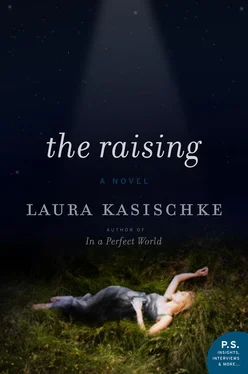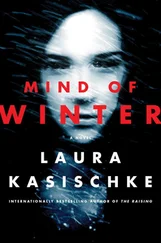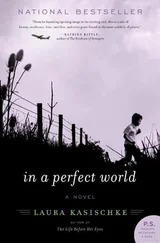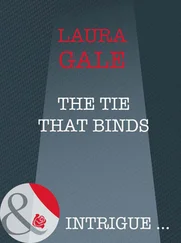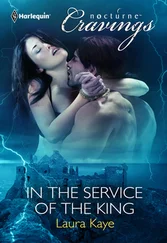Craig was only partly fooled by this. He knew his mother hated going on these kinds of trips with his father. She hated the drinking, the schmoozing, the phony bonhomie , and the competition from younger women smitten with the famous writer, leaning across the dinner table with their silverware held high so that their cleavage practically spilled onto his plate. His mother would have turned down the invitation to Belize anyway, and Scar didn’t go anywhere without their mother unless he was forced.
Still, stepping out of the tiny jet that had been sent for them in Miami—just ahead of his father, a breeze wafting around them that was both fragrant and heavy with the smell of dead things rotting in seawater—when the famous director took off his straw hat and whooped, and an actress Craig recognized from a movie he’d seen the week before on HBO smiled with brilliant familiarity, Craig felt privileged, and thrilled.
He was the famous writer’s kid.
“Hey,” the director said, “you must be the famous kid!”
The Caribbean was an amazing blue backdrop to the director’s resort. Twenty thatched bungalows lined the beach, a kidney-shaped pool behind them, and green miles of jungle behind that. Smiling people with beautiful bodies sauntered around the sand paths in bright little bathing suits, sipping drinks. A few fat gray iguanas dragged their tails between the bungalows, and in the jungly distance Craig heard the screaming of crazed-sounding birds. While the director led his father around, Craig sat poolside downing one after another of the rum punches a grumpy Belizean man old enough to be Craig’s grandfather brought to him on a tray.
He was completely plastered by the time his father and the director came back, laughing companionably. The wind had picked up, and the thrashing of the jungle and the Caribbean surf together made a deafening roar around Craig’s head, pummeling his ears, making it impossible to hear the conversations taking place around him at the dinner table. The meal itself was one unrecognizable dish after another, spooned up by the same angry-seeming black man, whom the director called Handsome Man.
No one else seemed deafened by the wind. There was a beautiful young woman on either side of the director, and one sitting across from Craig’s father, and the conversations they were having seemed both lighthearted and intense, as if they could hear and understand one another. But even when the Belizean man leaned down and spoke directly into his ear, Craig had to ask three times before he understood:
“Are you finished? Will you want more? Cream sauce or broth?”
Craig’s father shouted across the table to him, “Fred here says if it’s not too windy tomorrow we’ll go out to the barrier reef and swim with the sharks. What do you think about that?”
Craig had somehow managed to hear this proposition. “Wow!” he said. “Yeah! Sure!”
The director and Craig’s father laughed.
“The boy wants to swim with the sharks!” The director raised his glass. The young women all laughed, and then stared at Craig for several seconds as their smiles faded. It was as if they’d just noticed he was there, that the fact of the writer’s adolescent son had just occurred to them, and that they weren’t necessarily happy about it.
Craig flushed. One of the women said something to him then, but over the wind he couldn’t hear it. He shrugged. She laughed again, even less enthusiastically. He looked down at his plate. It was gone.
He woke the next morning with a throbbing headache and had to lie very still under the thwacking ceiling fan, willing himself not to open his eyes until the bed had stopped spinning. He could hear the wind rattle the thatch overhead and the sound of waves crashing in the distance. He sat up and heaved, once, dryly, before getting his hand around a bottle of water on the nightstand and drinking it down. After he’d managed to stand for a minute or two on his rubbery legs, he wove his way out of the thatched hut to find his father sitting at a glass table with the director, the old black man pouring coffee into their cups.
“Are we going to swim with the sharks?” he asked.
Both Craig’s father and the director looked up. They had obviously been having a serious conversation, maybe a disagreement. Neither of them looked happy to see Craig.
“Sorry, kid. Too windy to get out there,” the director said, holding up his hand as if offering the wind for proof. Over the Belizean man’s head, a ferny tree was leaning so far over it looked like it would be torn up by the roots and blown into the sea.
Craig couldn’t help it: He was far from home, fourteen, hung over, and exhausted, and the idea of facing a long day alone at the side of the pool being waited on by the black man, deafened by the wind, ignored by the director and his women, eating little muscled things in coconut sauce, hit him like a punch in the gut. (Why had his father brought him here? Maybe, it occurred to Craig for the first time, simply to placate his mother, to make it seem less likely that he was going to the famous director’s resort in Belize for the attentions of the young women she knew would be there.) “Oh, man ,” he whined.
A grim shadow passed over the director’s face. He said something to Craig that Craig couldn’t hear again over the wind, and then looked up at Craig’s father and said, more loudly, “Unless the Great American Writer here can do something about the wind!”
Craig’s father strained to smile. He looked up to the sky. He tapped his fingernails on the glass top of the table, something he did when he was being criticized by Craig’s mother, and then shouted, “Cease, wind! I command you!” The director guffawed and looked over at Craig with a genuine sneer.
It didn’t happen right away, but it happened.
Within a half hour, the air had grown eerily calm. Craig was sitting cross-legged on the beach, staring glumly out at the crashing surf, when suddenly the churning bath of the wind around his head stopped. A pelican that had been pumping its wings strenuously through the air over the ocean began to glide effortlessly, and Craig could hear again. There was hearty laughter coming from somewhere behind him, and he turned to see the director clapping his father on the back hard enough that the impact of it registered on his father’s face as annoyed surprise.
“Let’s go, Miracle Guys!”
The old black man drove the boat over the placid pale blue ocean while Craig’s father and the director drank beer in the back. They seemed no longer to be on speaking terms. Craig sat up front, and the ocean sprayed him in the face with a fine, spitty mist. The Belizean man cut the engine in what seemed to be simply an undefined spot in the middle of the Caribbean, specific nevertheless, and then he turned to Craig and nodded. “Here,” he said. “Put on your snorkel equipment.”
“Have fun, pal,” the director said, raising a brown bottle to him. “Been nice knowin’ ya!”
Craig’s father laughed, but looked uneasy. He stood up with his beer in his fist and looked over the edge of the boat, and Craig, struggling to pull his fins over his feet, felt his enthusiasm for swimming with sharks drain out of him as the Belizean man reached into a cooler, pulled out a handful of bloody fish pieces, and tossed them into the sea.
The chunks floated along the surface for a few seconds, and then there was a roiling of the water beneath them, and then they were gone, and Craig saw beneath the unearthly aqua blue two long black shadows, side by side, moving in awesome silence, each one longer than a tall man. The Belizean man threw another handful of fish into the water, and it never even floated, just disappeared in an instant into a mob of shadows.
Читать дальше
